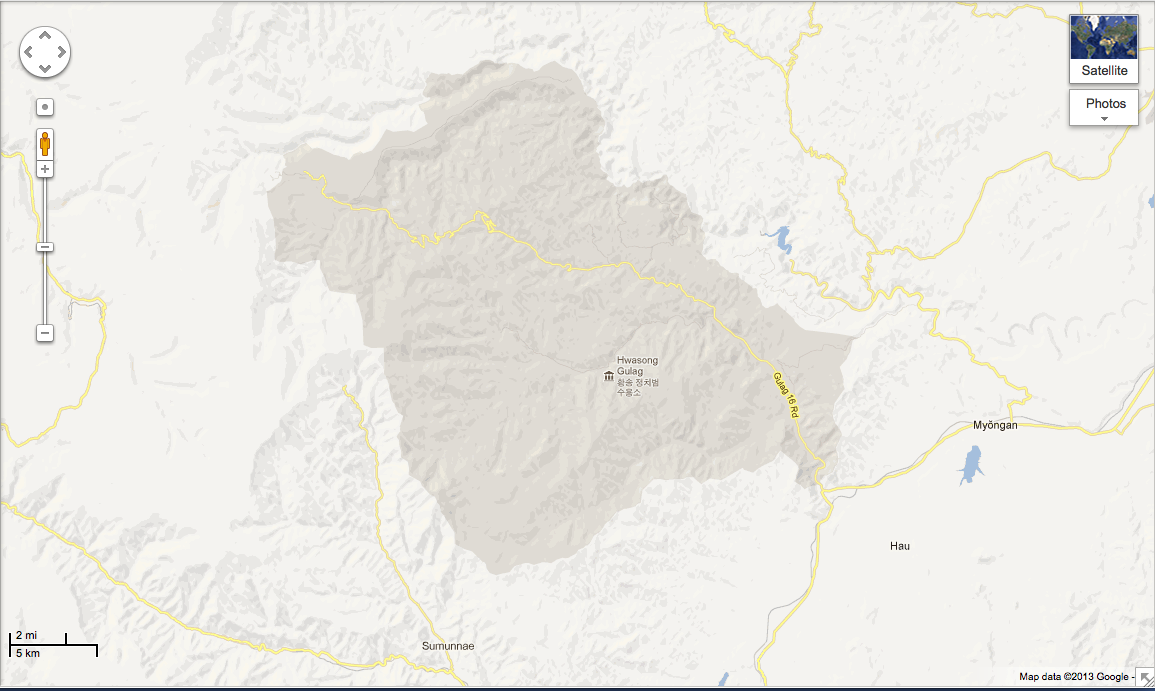Google executive Eric Schmidt, in red scarf, and former New Mexico governor Bill Richardson, far right, observe North Korean soldiers working on computers at the Grand People's Study House in Pyongyang on Jan. 9, 2013
When Google executive Eric Schmidt visited North Korea earlier this month with former New Mexico governor Bill Richardson, they urged the isolated totalitarian state to open itself up to the Internet. Now Google has used the Internet to open North Korea up a little more to the rest of the world. The company announced Monday that it was updating its online map of North Korea with far more details of the Hermit Kingdom, which had previously appeared as a largely featureless void on the Google Maps service.
In a blog post, Google explained that the map had been filled in by years of effort by citizen cartographers using Google Map Maker, which allows volunteers to add detail to a group-edited map. “We know this map is not perfect — one of the exciting things about maps is that the world is a constantly changing place,” Google Map Maker senior product manager Jayanth Mysore wrote.
(MORE: In North Korea, Google Exec Sees an Internet Open for the Very Few)
Google highlighted the map’s new detail of Pyongyang, the North Korean capital, including the addition of roads and parks. But far more interesting and sensitive features can be found, including the Yongbyon nuclear-research center, a key facility in the country’s drive to produce nuclear weapons.

And some of the prison camps that make up North Korea’s extensive gulag for perceived enemies of the regime are included on the map. Here’s a view of the Hwasong prison camp, or Camp 16, in the country’s northeast, where some 10,000 prisoners are believed to be held:

During Schmidt and Richardson’s trip, the delegation visited a computer lab at Kim Il Sung University, where they peered over one student’s shoulder as he used Google’s search engine. In a blog post after the trip, Schmidt’s daughter Sophie described the lab as an “e-Potemkin Village” where nobody appeared to be doing anything. The students allowed to use the Internet are members of what one analyst called the country’s “superelite,” allowed to use the Internet because they are considered politically reliable. The possibility that North Korea might allow greater Internet access seems slim, given the risk that flow of information could pose to the Kim regime. After Google’s move to fill in the blank spaces of its map, that prospect seems even less likely.
PHOTOS: A New Look at North Korea

